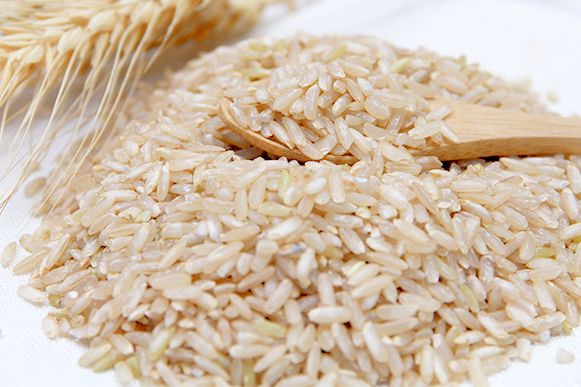Introduction
Protein supplementation has become increasingly popular in the quest for optimal health and nutrition. Among the many protein sources available, germinated brown rice protein powder and bovine collagen are two notable contenders. While both offer unique benefits, they cater to different needs and preferences. This article delves into a detailed comparison of germinated brown rice protein powder and bovine collagen, examining their origins, nutritional profiles, health benefits, and suitability for various dietary needs.
1. Understanding Germinated Brown Rice Protein Powder
1.1. What is Germinated Brown Rice Protein Powder?
Germinated brown rice protein powder is derived from brown rice and can germinate or sprout. This process enhances the nutritional Profile of the rice, making it a valuable source of protein. The rice is soaked, germinated, and processed into a fine powder.
1.2. Nutritional Profile
Germinated brown rice protein powder is a rich source of plant-based protein. It typically contains:
– Protein Content: About 70-80% protein by weight.
– Amino Acids: These include essential amino acids, though they may be lower in lysine than animal-based proteins.
– Vitamins and Minerals: Contains B vitamins, iron, magnesium, and potassium.
– Fiber: A good source of dietary fiber.
1.3. Health Benefits
– Digestibility: Easier on the digestive system than other protein powders, making it suitable for sensitive stomachs.
– Hypoallergenic: Generally free from common allergens such as dairy, soy, and gluten.
– Support for Muscle Growth: Provides essential amino acids needed for muscle repair and growth, although it might be less effective than whey protein for muscle synthesis.
1.4. Environmental Impact
Germinated brown rice is considered environmentally friendly compared to animal-based protein sources. It requires fewer resources like water and feed and contributes less to greenhouse gas emissions.
2. Understanding Bovine Collagen
2.1. What is Bovine Collagen?
Bovine collagen is derived from the connective tissues of cows. It is primarily extracted from the skin, bones, and cartilage and processed into a powdered form. Collagen is a protein that plays a critical role in maintaining the structure and elasticity of the skin, joints, and connective tissues.
2.2. Nutritional Profile
Bovine collagen powder typically contains:
– Protein Content: Varies, but often around 90% protein by weight.
– Amino Acids: Rich in glycine, proline, and hydroxyproline, which are essential for collagen synthesis in the body.
– Vitamins and Minerals: Generally low in vitamins and minerals, as the focus is on protein content.
2.3. Health Benefits
– Joint Health: Supports joint health and may reduce osteoarthritis and joint pain symptoms.
– Skin Health: Contributes to skin elasticity and hydration, potentially reducing wrinkles and improving skin texture.
– Gut Health: It may help maintain gut health by supporting the integrity of the gut lining.
2.4. Environmental and Ethical Considerations
Bovine collagen production involves animal byproducts, which raises ethical and environmental concerns. Production also requires significant resources and can contribute to animal welfare issues.
3. Comparing Germinated Brown Rice Protein Powder and Bovine Collagen
3.1. Protein Quality and Digestibility
– Germinated Brown Rice Protein Powder: Provides a high-quality plant-based protein but may lack certain essential amino acids. Generally well-tolerated and easily digestible.
– Bovine Collagen: Offers a complete protein with high digestibility due to its hydrolyzed form. It contains unique amino acids that support specific bodily functions, like joint and skin health.
3.2. Health Benefits
– Germinated Brown Rice Protein Powder: Ideal for overall muscle maintenance, especially for vegetarians and those with allergies. It is less effective for joint and skin health compared to collagen.
– Bovine Collagen: Specifically benefits joint health, skin elasticity, and gut health. It is less effective for muscle growth compared to other protein sources.
3.3. Dietary Preferences and Restrictions
– Germinated Brown Rice Protein Powder: Suitable for vegans, vegetarians, and those with dairy or gluten sensitivities.
– Bovine Collagen: Not suitable for vegetarians or vegans due to its animal origin.
3.4. Environmental Impact
– Germinated Brown Rice Protein Powder: Generally considered more sustainable with a lower environmental footprint.
– Bovine Collagen: Has a higher environmental impact due to animal agriculture and resource use.
4. Choosing the Right Supplement
When deciding between germinated brown rice protein powder and bovine collagen, consider the following factors:
– Health Goals: Choose germinated brown rice protein if you are looking for a plant-based protein source or have dietary restrictions. Opt for bovine collagen to improve joint health, skin elasticity, or gut health.
– Dietary Preferences: Select germinated brown rice protein for a vegan or vegetarian diet. Bovine collagen is suitable for those who are okay with animal-derived products.
– Environmental and Ethical Concerns: Consider your choice’s environmental Impact and ethical implications. Germinated brown rice protein generally has a lower ecological footprint.
Conclusion
Both germinated brown rice protein powder and bovine collagen offer valuable health benefits but cater to different needs and preferences. Germinated brown rice protein is an excellent choice for those seeking a plant-based, hypoallergenic protein source, while bovine collagen supports joint, skin, and gut health. By understanding the unique properties and benefits of each, you can make an informed decision that aligns with your health goals, dietary needs, and ethical values.

